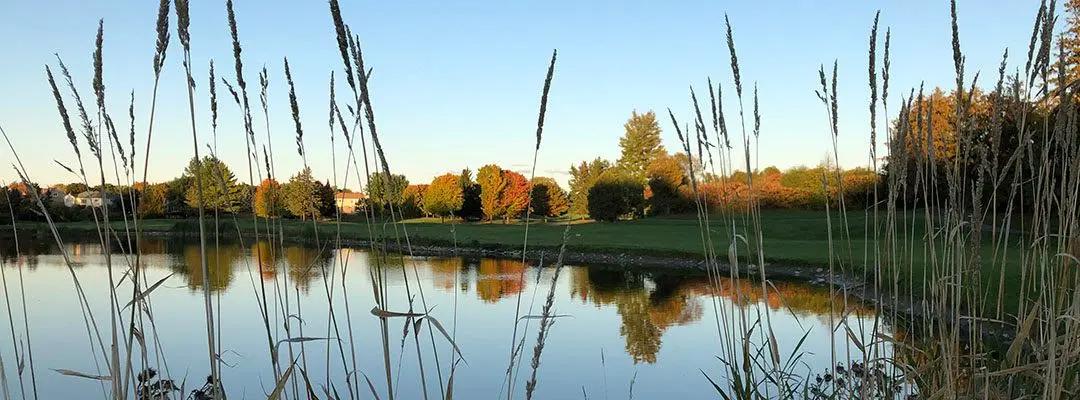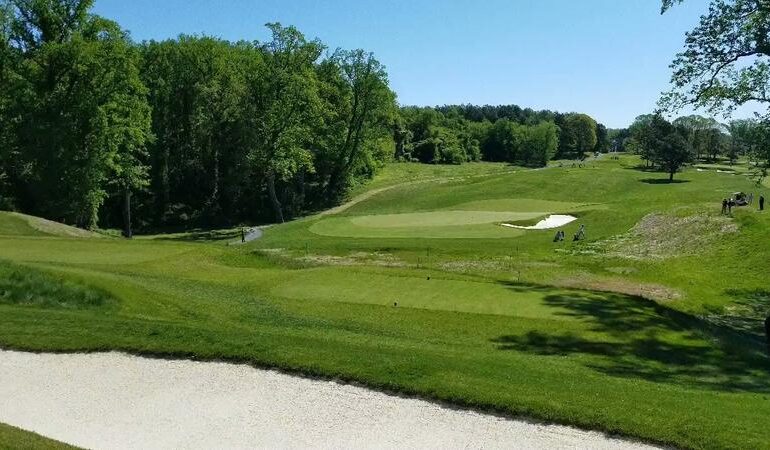The Supreme Court of Canada won’t hear the City of Ottawa’s appeal in a long-running legal battle over a proposed housing development at the Kanata Golf and Country Club, a decision that opens the door to construction on a site at the centre of one of the province’s most high-profile anti-development fights.
A plan by ClubLink to redevelop the now Kanata Golf and Country Club into a 1,500-home subdivision has drawn sharp opposition from city councillors, community groups, and the area’s Liberal MPP Karen McCrimmon.
But despite that pushback, and a long-standing 1981 agreement that set aside the land as greenspace, the Ford government didn’t show any signs that it would intervene.
“This matter is potentially subject to litigation, and it would be inappropriate to comment further,” a spokesperson for then Housing and Municipal Affairs Minister Paul Calandra said last year, when the city decided to appeal, adding that the ministry is not involved in planning approvals or court proceedings.
The legal fight effectively ended earlier this month when the Supreme Court of Canada declined to hear the City of Ottawa’s appeal, allowing ClubLink to move ahead with its plans.
Housing expert Mike Moffatt said the dispute is a classic case of neighbourhood groups using any tool at their disposal to resist infill housing.
“I get why residents don’t want it, they like the greenspace,” Moffatt said in an interview. “But when we’re facing a housing crisis and the city says it has an ambitious housing plan, fighting infill on one of the last big undeveloped parcels in the city just doesn’t make sense.”
Community groups say this isn’t just NIMBYism, it’s about protecting critical infrastructure and upholding a longstanding agreement. The 1981 deal between the then-City of Kanata and the land’s original developer set aside 40 per cent of the site as greenspace, including the golf course, which also serves as a stormwater basin.
Cathy Curry, who represents the area on council, said the city could use its own tools to slow or block the development, including refusing to grant easements and infrastructure upgrades required for servicing the site.
“The current owner knew the terms when they bought this land,” Curry said. “The legal process is not the only power the city has. We don’t have to dig up our roads for them.”
Mayor Mark Sutcliffe also vowed to use “every tool available,” though the Supreme Court decision means litigation is no longer one of them.
The Kanata Lakes case comes at a time when the Ford government is under pressure to deliver on its promise of building 1.5 million homes by 2031.
“This is where the rubber hits the road,” Moffatt said. “If you say you want more housing, but you oppose building on old golf courses, where exactly do you expect that housing to go?”
Moffatt said the city’s stance has been contradictory. “They say they will put forward the most ambitious housing plan ever, but they’re blocking infill on a massive piece of land. It sends mixed signals to developers and residents.”
The Ford government has also faced blowback for walking back urban boundary expansions in Ottawa and other municipalities, a move that may have reduced the amount of land available for development, further complicating the city’s housing picture.
The Ontario Land Tribunal has previously ruled in favour of ClubLink, finding that the development conforms to Ottawa’s Official Plan and serves the public interest, but with several conditions still outstanding. ClubLink will also need approval from the National Capital Commission to install a stormwater outlet for the project.
Whether the city will continue fighting through planning tools and procedural delays remains to be seen. But unless the province reverses course and intervenes, the housing plan appears set to proceed.
The Ministry of Housing and Municipal Affairs did not provide comment in time for publication.







